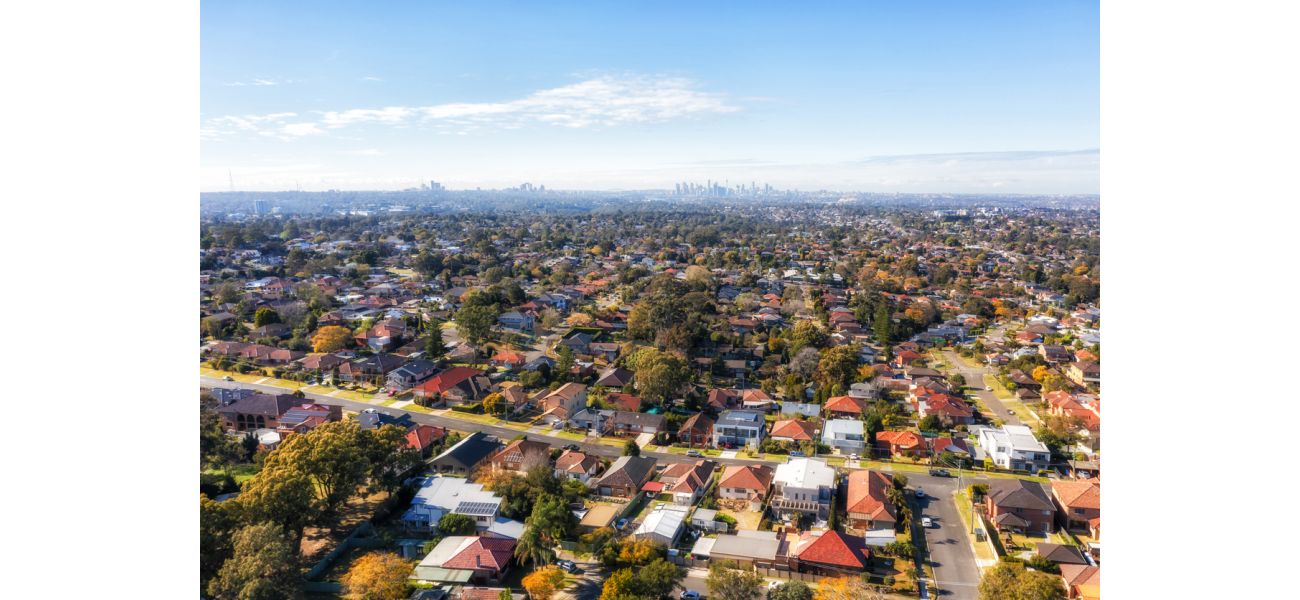"Housing market setback anticipated by specialists"
Experts and economists have shared their opinions on when the RBA will begin lowering rates.
September 19th 2024.

The current economic climate has been causing a lot of stress for homeowners, and unfortunately, they may have to wait a little longer for any relief. A recent survey conducted by Comparison found that all 42 experts and economists they spoke to predicted that the Reserve Bank would keep the cash rate at 4.35 per cent in September. Looking ahead, 68 per cent of these experts believe that the first rate cut won't happen until the first few meetings of next year, with February being the most likely option according to 44 per cent of them.
But there is a glimmer of hope for those hoping for an earlier rate cut. Graham Cooke, the head of consumer research at Finder, believes that the recent decision by the US Federal Reserve to lower American interest rates by a significant 50 basis points may influence the RBA to do the same this year, possibly in November. However, not all experts share this view, with some like Geoffrey Kingston from Macquarie University Business School, pointing out that the economy is giving mixed signals. On one hand, inflation remains high due to increased public-sector spending, but on the other hand, the private sector is slowing down.
The panel of experts also expressed their concerns about the possibility of Australia entering a recession in the next 12 months. They believe that there is a 39 per cent chance of this happening, with some even putting the likelihood at higher than 50 per cent. Factors such as high interest rates, global economic uncertainty, weak consumer confidence, and a slowdown in the labor market, could all contribute to this potential recession. Jakob Madsen from UWA believes that the economy is currently out of balance, with bubbles in stock, housing, and credit markets, and low investment levels.
However, not everyone shares these concerns. Tim Reardon from the Housing Industry Association believes that the chances of a recession in Australia are no higher than usual. He points to strong population growth and tight labor markets as factors that are helping to offset the potential headwinds. But even if Australia manages to avoid a recession, many people are still struggling financially. Cooke notes that the high cost of living, coupled with stagnant wages and a high cash rate, have made it challenging for households to make ends meet. He advises people to prioritize paying off high-interest debt and finding ways to increase their savings to safeguard their finances.
Looking at the housing market, experts predict that house and unit prices will see low growth across all capital cities except for Perth. The average growth rate for all capital cities is expected to be 2.1 per cent, with Perth projected to see the most significant rise at 5.2 per cent. This means that the average minimum income required to afford a house in Perth will be $154,910, and $103,966 for a unit. If you want to stay updated on all the latest breaking news, celebrity gossip, and sports updates, you can join our WhatsApp channel with no comments, no algorithms, and no one seeing your private details.
But there is a glimmer of hope for those hoping for an earlier rate cut. Graham Cooke, the head of consumer research at Finder, believes that the recent decision by the US Federal Reserve to lower American interest rates by a significant 50 basis points may influence the RBA to do the same this year, possibly in November. However, not all experts share this view, with some like Geoffrey Kingston from Macquarie University Business School, pointing out that the economy is giving mixed signals. On one hand, inflation remains high due to increased public-sector spending, but on the other hand, the private sector is slowing down.
The panel of experts also expressed their concerns about the possibility of Australia entering a recession in the next 12 months. They believe that there is a 39 per cent chance of this happening, with some even putting the likelihood at higher than 50 per cent. Factors such as high interest rates, global economic uncertainty, weak consumer confidence, and a slowdown in the labor market, could all contribute to this potential recession. Jakob Madsen from UWA believes that the economy is currently out of balance, with bubbles in stock, housing, and credit markets, and low investment levels.
However, not everyone shares these concerns. Tim Reardon from the Housing Industry Association believes that the chances of a recession in Australia are no higher than usual. He points to strong population growth and tight labor markets as factors that are helping to offset the potential headwinds. But even if Australia manages to avoid a recession, many people are still struggling financially. Cooke notes that the high cost of living, coupled with stagnant wages and a high cash rate, have made it challenging for households to make ends meet. He advises people to prioritize paying off high-interest debt and finding ways to increase their savings to safeguard their finances.
Looking at the housing market, experts predict that house and unit prices will see low growth across all capital cities except for Perth. The average growth rate for all capital cities is expected to be 2.1 per cent, with Perth projected to see the most significant rise at 5.2 per cent. This means that the average minimum income required to afford a house in Perth will be $154,910, and $103,966 for a unit. If you want to stay updated on all the latest breaking news, celebrity gossip, and sports updates, you can join our WhatsApp channel with no comments, no algorithms, and no one seeing your private details.
[This article has been trending online recently and has been generated with AI. Your feed is customized.]
[Generative AI is experimental.]
0
0
Submit Comment





